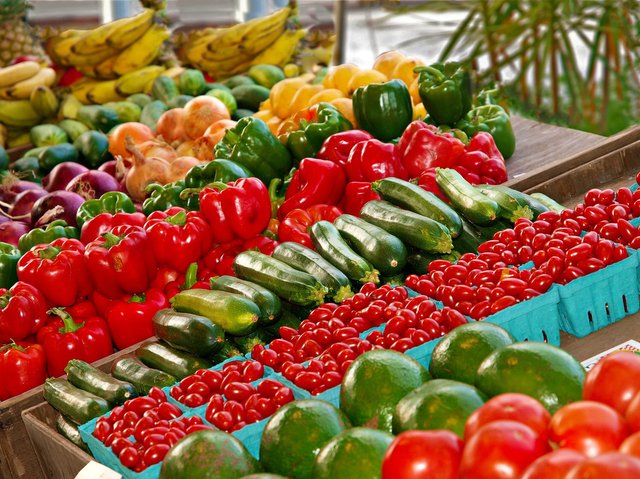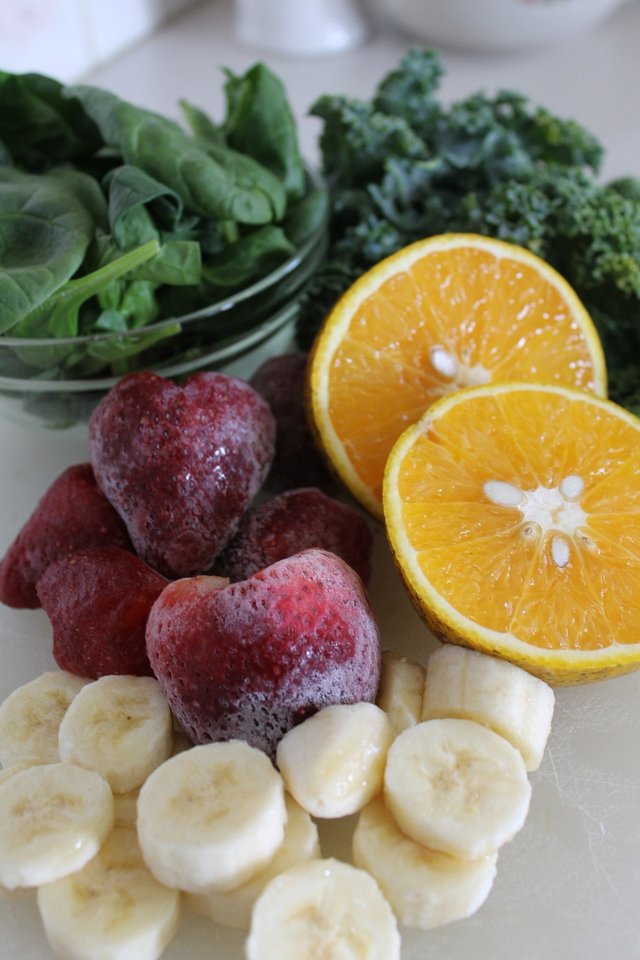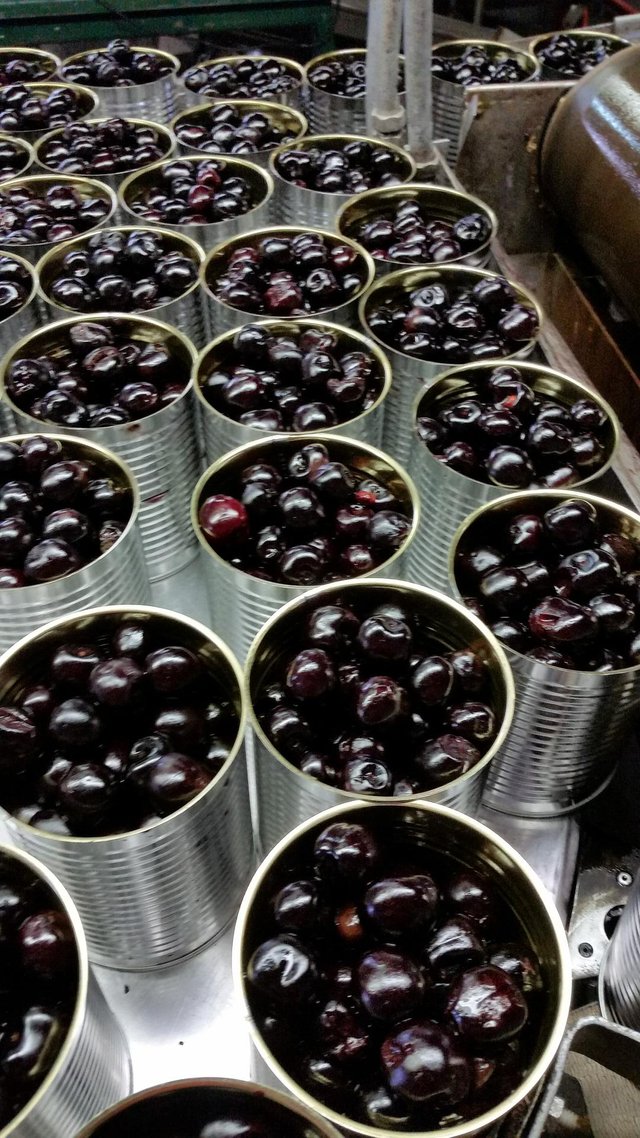Fresh or Frozen: A deeper look
Introduction
Canned and frozen vegetables and fruits are more nutritious than fresh ones.
Sounds interesting and unbelievable to you?
You're not alone, because I found it unimaginable too so I've done some research and I'd love to share what I've read and learnt.
But before that, I want to thank @mobbs for helping me without hesitation. Keep helping and teaching people, you're doing a good job!
Where to shop?
It seems obvious that shopping for fresh, organic veg is better than shopping in the frozen aisle. However, the opposite is often true. Canned and frozen produce can have more nutrients than its fresh counterparts.
This is due to how the foods are transported. Frozen and canned produce is processed right when it's ripe so it's nutrients are locked in and aren't given much of a chance to degrade.
The moment fresh products are picked, their nutrients start to degrade. Picking a fruit or veggie from the tree, bush, or vine takes it away from its food source then it starts using up its own nutrients to stay alive. This degradation can last different times but many countries go to great lengths to extend the lives of the food:
Apple
Apples can last up to a year in storage and go through some crazy quality control. At first they are put in water. Apples float, so this helps separate them from the rest of the stuff.
Here people can clearly see the problem fruits and get them out of the way. for the rest, they get washed with soap and chlorine, rinsed with hot water, and then brushed and dried.
Some go even further, applying a layer of wax to capture the moisture, then dried with hot air. If this wasn't enough, they even have a double-selfie taken, where computers take a look to double check if there's anything strange.
After being boxed or bagged, they go into cold storage with lowered oxygen in the air - depending on the time of year and when they intend to be sold - where theey can stay for up to a year.
Banana
Quite the opposite to apples, bananas will last about 2 weeks if you're lucky.
Most bananas are less available in colder climates where apples can grow, so they're usually grown in places like the Caribbean, South America and Africa. They can take up to 6 days to transport to wherever they need to go.
At first they're picked and boxed, and put into refrigerated transport to slow down the unstoppable ripening process. By the time they get to their destination, they are usually still green and tough.
This is where they get put into a kind of sealed ripening room where their temperature is raised slowly to 17 degrees C, and ethylene is released into the room for a day or so.
At this point the bananas are brought back to life in a way, so the ethylene is removed, and the room starts to fill with Carbon Dioxide from the bananas themselves, and their internal temperature can rise to over 30 degrees C.
Finally, the fruit is ready to be sold and eaten.
Complications
As you can see, even fresh fruits go through a lot of processing just to survive the winter or exporting from one place to another. Even so, most are destined to lose quality and vitamins in the short term.
For example, when researched, it turned out that green peas would lose over half of their moisture within the first day after being picked,
But it's never that simple. These studies were often financed and conducted by the industry trying to sell frozen products, so we need to dig deeper to find the truth.
Alternative research
There are some cases where freezing can be a bad thing. When it comes to vitamins that are soluble in water like vitamins B and C, they can be lost at a rate of 13% in a fridge, and 50% in a freezer after a few weeks.
On the other hand, other nutrients like antioxidants barely degrade in this environment at all, so in a way, it can depend on what you need; vitamin C is almost everywhere, so there's little concern losing 50% in a single food source.
Most interestingly, alternative research from the University of California actually found that there's not that much difference between the frozen and fresh food they tested, with only slight improvements in frozen compared to fresh.
This is important to note. Aside from research done by the people trying to sell the product, questions are still unanswered in this subject, and there are other things to consider.
For example, it's more than simply watching the product lose nutrients after they're picked. Many products are usually picked before they're ripe to prevent them from spoiling before reaching their destination. The inevitable downside of this is that it will not contain all the nutrients it could have if left to fully ripen, so we're losing out before we even start the process of freezing and canning.
Conclusion
Overall, there's no need to avoid canned and frozen produce. it's more important to think about the amount of fruits and vegetables you eat, and the balance of your diet that leads to a healthy lifestyle. If grabbing stuff out of your pantry or freezer is the way you know you'll eat them, do it because you're not missing out on nutritional benefits, and even benefitting to some level.
In the US, over a third of people have less than a single serving of fruit and veg in any given day. this is the real problem.
For most of us, canned and frozen fruit and vegetables are more economical choices if you find your fresh produce spoiling before you can eat it.
One thing to consider with canned foods is that they tend to be high in sodium, but more and more low-sodium or no salt added options are appearing in the canned goods aisle. You might want to look out for those for a great place to start and to cut out sodium even more. Otherwise, rinse and drain your canned veggies to decrease the sodium!
Verdict: Don't think too much. Eat the right amount of fruit and vegetables, and you'll be alright =)
References:
Curiosity.com
Journal of Science of Food and Agriculture
Sciencedirect.com
Theguardian.com
Department of Food Science and Technology, UCLA
CDC.gov




One reason to avoid canned foods in general may be the industry-wide practice of lining the inside with plastics of one kind or another, frequent consumption of foods that have been sitting in close proximity to these inner linings could potentially impart some of the plasticy goodness.
@earisu - good post thanks. As far as frozen vegetables are concerned, I agree with you. Last year I was in a situation where I had little access to fresh vegetbles, so I did some research on frozen. Seems yes, in many or most cases frozen vegetables have higher nutrient value than supermarket vegetables that have been sitting aroung for days. Frozen vegetables are usually flash-frozen within hours of harvest. As far as canned veggies are concerned, i'm not so sure. I'm a little concerned about additives and potential contaminants from the canning process and can materials...
Canning process have sodium yeah. But you can reduce sodium by rinsing it. And there are also canned foods that have low sodium, you might want to pick that one from the pantry. I'm glad you took time to read my article :) thanks.
Welcome.
In my opinion, it doesn't matter how you get your fruits and vegetables as long as you get them.
Lol. Yeah of course "as long as you get them" and eat good amount to get enough nutrients. :)
This is really surprising. For a long time, fresh fruits and vegetables has been my choice. Thanks for the exposure.
I would prefer that too. Since it would be much easier to get your preferred fruits and veggies on groceries. Great article @earisu ;)

Hi @sakura1012 thank you for time to actually read it. I'm glad you liked what I've shared with @mobbs help. :)
Your welcome :) Just keep on producing amazing and good quality content
I personally prefer fresh to frozen but the stress of having to go all out to get fresh vegetables make me pick the frozen and canned options.
Nicely written article!
Exactly. You don't have to worry about which one you'll get and eat. :)
To be honest, I love the pictures..
Thanks. But those photos are not mine :)
Alright
good !
nice
Well at least now we know. Good job! :D